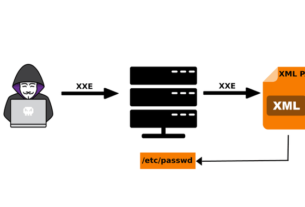Welcome back, my aspiring OSINT Investigators!
Often as OSINT investigators, pentesters and hackers, we need to determine if a email address of the target exits and, if so, whether it has been compromised. There are a multitude of locations where compromised emails and passwords are stored and not all of them contain all the latest dumps. Now we have a tool that can search through all of these databases and determine whether an email has been compromised and which data dump compromised it!
h8mail is a tool for finding compromised email addresses and their passwords from these data breaches. When you combine this tool with others such as TheHarvester or the crosslinked tool, you can harvest email addresses from an organization and then test to see if they have been compromised
Although there are numerous tools to do so, h8mail may be the best!

Step #1: Install h8mail
The first step is to install h8mail. The developer has made this process simple and painless. We can simply download it from pip3.
kali > pip3 install h8mail

kali > apt install python3-pip
Step #2: h8mail help
Before get started, let’s look at this tool’s help screen. When I installed it, the package placed my binary file in /home/kali/.local/bin. Yours may be different. If this directory is not in your $PATH variable, you will need to add it or simply navigate to the directory where the binary is located.
kali > cd /home/kali/.local/bin
Now, if we preface the command with the name of the interpreter (python3), we should be able to run this script. Simply append a -h after the command to display the help file.
kali > python3 h8mail -h

This tool has a multitude of options, but in its simplest form its usage syntax looks like this:
python3 h8mail -t <target email address>
Step #3: Acquire and Install API Keys
Next, we need to create a configuration file and provide API keys to the databases we want to search. To create a configuration file, enter;
kali >python3 h8mail -g
h8mail will now create config file in the directory you executed this command from. I ran the command from /home/kali/.local/bin, so my config file was placed in that directory. Yours may be different, but h8mail will display the directory and file name after creating the file as seen below.


kali> mousepad /home/kali/.local/bin/h8mail_config.ini

Step #4: Search for email addresses in dumps
h8mail’s syntax is rather simple for simple searches. We only need to use the -t option followed by the target email address to search the dumps for this email followed by the -c option and the location of your config file, such as;
kali > python3 ./h8mail -t linda.vu@gmail.com -c /home/kali/.local/bin/h8mail_config.ini

When we hit enter, h8mail begins its search through the databases we specified in the configuration file.

kali > python3 ./h8mail -t linda.vu@gmail.com -c /home/kali/.local/bin/h8mail_config.ini -o linda_results.txt


Summary
Very often, as OSINT investigators or pentesters we need to know whether an email has been compromised in the numerous data dumps that occur almost daily. H8mail is an excellent, out-of-the-box tool for automating the search through the dump databases. In addition, h8mail can read from a .txt file and output to a .csv file when working with large data sets making your OSINT investigation faster and more efficient.
For more OSINT techniques, click here.






